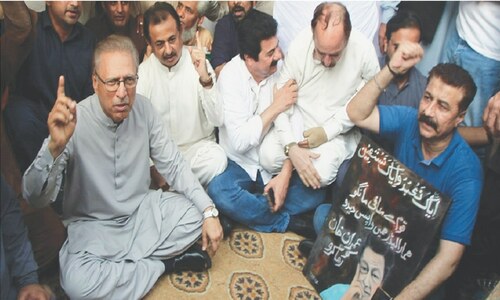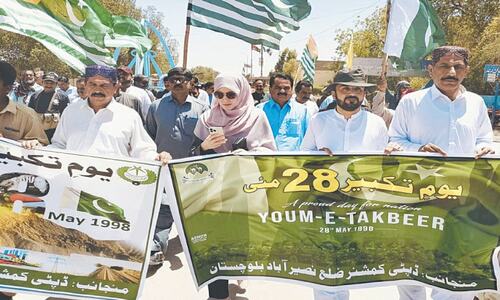ISLAMABAD: Senior Afghan officials arrived in Pakistan on Wednesday to initiate peace talks with the Afghan Taliban following a breakthrough in negotiations during last month’s summit in Britain, a Pakistani Foreign Ministry source said.
The official would not say if and when they would meet former Afghan Taliban No.2 Mullah Abdul Ghani Baradar, a man seen by Kabul as the key to restarting peace talks with the Taliban.
Baradar is said to be staying at an undisclosed location in Pakistan since Islamabad announced in September that it would release him in order to facilitate the Afghan peace process.
“The Afghan peace council has arrived in Islamabad accompanied by some other Foreign and Interior Ministry officials,” the Pakistani official with knowledge of the peace talks told foreign news agency Reuters.
“This is a follow up of what was decided in London and they will meet officials in the ministries of interior and foreign,” the official said, adding that the delegation arrived in the capital Islamabad in mid-afternoon.
British Prime Minister David Cameron hosted Afghan President Hamid Karzai and Pakistani Prime Minister Nawaz Sharif in London last month to discuss ways to kick start the stalled process.
Karzai formed the Afghan High Peace Council in 2010 to pursue a negotiated peace with the Taliban, who have been leading an insurgency since being ousted from power by the US-led forces in 2001.
Baradar is a long-time friend of the reclusive, one-eyed Taliban leader Mullah Mohammad Omar, and Afghanistan believes he is still powerful enough to persuade the insurgents to lay down their weapons and make peace.
Baradar was the Taliban’s deputy leader and one of their most influential commanders until he was arrested in Pakistan in 2010. Pakistan announced his release last month but Baradar remains in the country under close supervision.












































